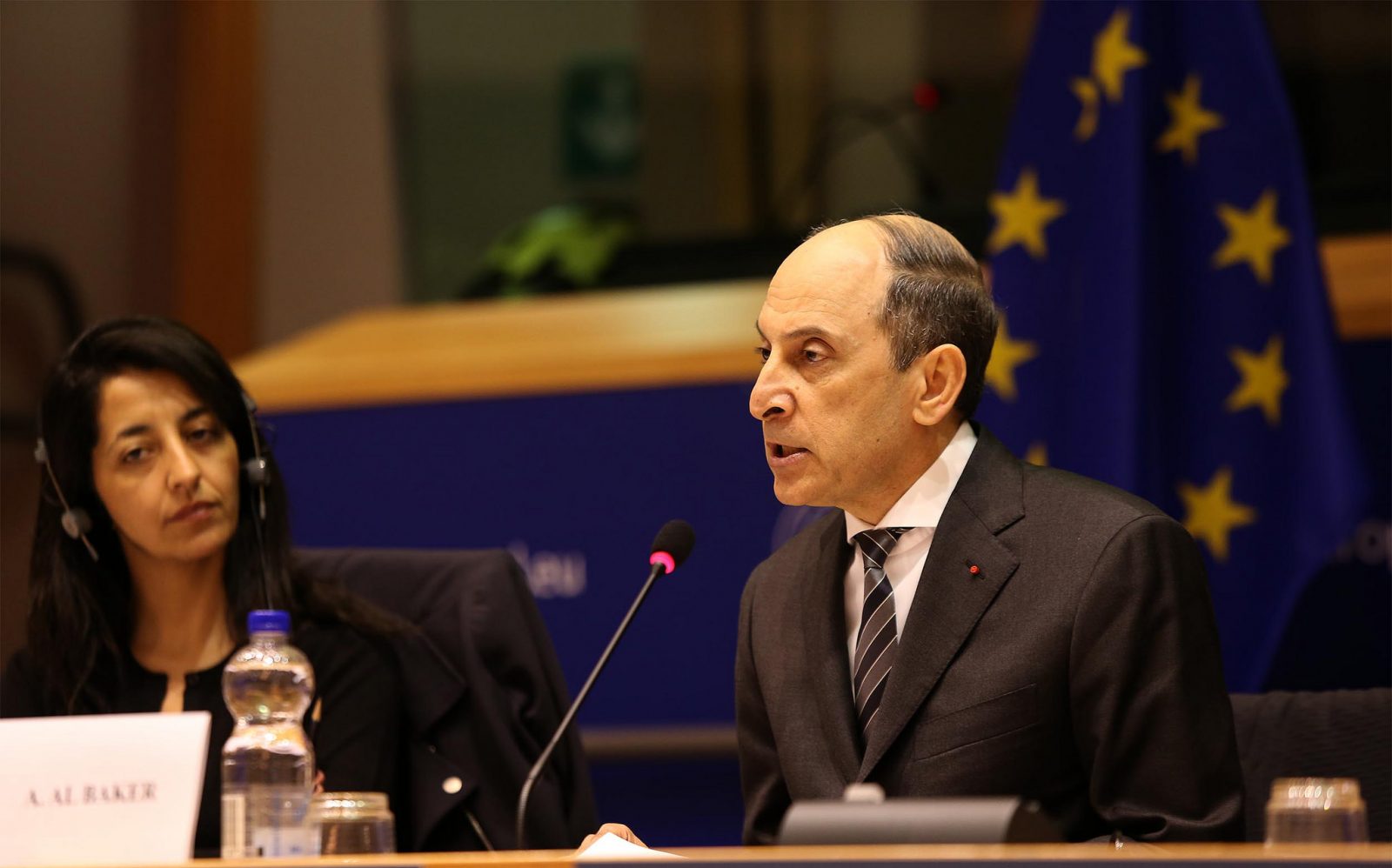
As a blockade on the State of Qatar by a Saudi-led bloc of countries which includes the UAE, Bahrain and Egypt approaches its first anniversary, the chief executive of the government-owned airline, Qatar Airways has personally addressed a committee of the European Union’s Parliament – giving an account which reveals previously unreleased details.
Akbar Al Baker was invited to speak at a hearing of the Committee on Transport and Tourism by European Parliament member, Ismail Erug – becoming the first airline chief outside of Europe to address the committee in person. The outspoken executive used typically colourful language in his speech and an accompanying statement described the blockade as “an act of war”.
Last June, Saudi Arabia and its coalition of three other Arab countries unexpectedly announced a blockade against Qatar. Airlines, including Emirates and Etihad, stopped flying to Qatar almost immediately. Qatar Airways was banned from flying into the airspace of its neighbours and Qatari citizens were ordered to leave the UAE and Saudi Arabia.
The Saudi’s accuse Qatar of funding extremist Islamist terrorist groups and have issued a long list of demands that Qatar must meet for the blockade to be lifted – including the closure of the popular Doha-based news channel, Al Jazeera. Qatar has refused to comply with the demands and instead says Saudia Arabia is trying to dictate its foreign policy.
“The year 2017 marked a turning point for the State of Qatar as the country became subject to the ruthless campaign of isolation coordinated by some of our neighbours and longtime partners,” Baker told the committee.
“The airspace blockage was completely unprovoked and without a mandate from the United Nations Security Council or any other international body.”
“The stated reasons for this blockade were pure fiction,” Baker said. He continued:
“On the morning of June 5th, 2017, the number of (air) corridors was reduced from 18 to two with only two corridors available… elaborate measures were necessary to assure safe operations”

Baker was at the Annual General Meeting of IATA, which was being held in Cancun, Mexico when news of the blockade broke. Speaking for the first time about this moment, Baker said he immediately made a 22 hour return journey to Qatar to guide the response of his airline.
He told the committee his airline was unable to help stranded passengers in the affected countries as local authorities used “force” to close Qatar Airways offices. Yet problems like that turned out to be trivial compared to the other challenges facing the airline. As Saudia Arabia closed its only land border into Qatar, it also closed a major source of essential goods which is imported into the country.
Qatar Airways has become what Baker calls a “strategic pillar” to ensure food security – air freighting fresh food and medicine which had in the past been delivered over the land border from Saudia Arabia.
Drawing contrasts with the erection of the Berlin Wall during the Cold War, Baker says the blockade has “imposed significant human hardship”.
But if he had been hoping from a forceful response from international aviation bodies then Baker would have been sorely mistaken it appears. He says the International Civil Aviation Organization (ICAO) offered a “timid and disappointing” response to Qatar’s complaints.
In the last few months, Baker has become an increasingly vocal opponent of the blockade – seemingly becoming a spokesperson for the State of Qatar as the head of the country’s most recognisable and widest reaching brand.
The airline has said it has made a “substantial” loss in its last financial year as a result of the blockade but is yet to release the figures involved.
Mateusz Maszczynski honed his skills as an international flight attendant at the most prominent airline in the Middle East and has been flying ever since... most recently for a well known European airline. Matt is passionate about the aviation industry and has become an expert in passenger experience and human-centric stories. Always keeping an ear close to the ground, Matt's industry insights, analysis and news coverage is frequently relied upon by some of the biggest names in journalism.







